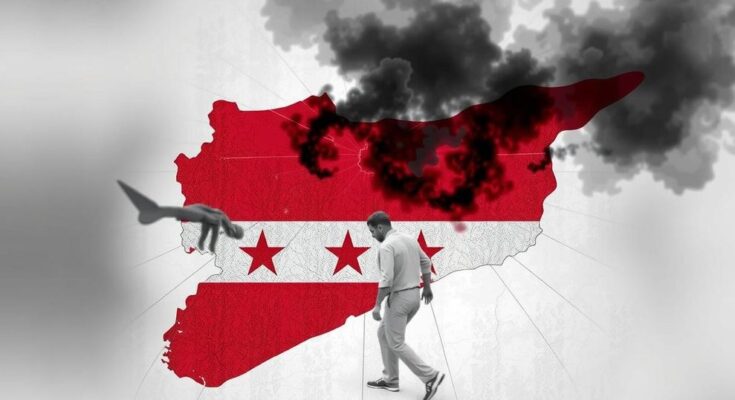The Syrian Civil War has intensified as rebel factions, led by Hayat Tahrir Al Sham (HTS), overthrew President Bashar Al Assad’s regime, capturing key cities and the capital, Damascus. This unexpected turn followed years of relative stability in the region. PM Mohammad Jalali indicated readiness to collaborate with opposition, while Assad’s whereabouts remain unclear. Public sentiment turned celebratory as the regime’s hold on power was dramatically challenged.
The Syrian Civil War, which began in 2011 as a consequence of the broader Arab Spring, has recently escalated dramatically. On Sunday, Hayat Tahrir Al Sham (HTS) made a surprising declaration of freedom as rebel forces overthrew the regime of Bashar Al Assad in an unexpected turn of events. This shift comes after years of relative stability enforced by the Syrian Army and its allies, though the mounting pressures of various conflicts outside Syria’s borders contributed to the regime’s rapid decline.
HTS and the Free Syrian Army initiated a renewed onslaught that led to the capture of Aleppo and a subsequent march towards Damascus. Within a week, multiple cities fell to their control, culminating in their entry into the capital. Notably, they liberated Saydnaya prison, freeing numerous political detainees imprisoned under Assad’s rule.
Prime Minister Mohammad Jalali’s announcement reflected willingness for collaboration with opposition forces, urging citizens to avoid damaging public property. Furthermore, it has been reported that President Assad fled Syria amidst this upheaval, though rumors surrounding his fate remain unverified, with some claiming his plane was downed over Jordan. HTS officially declared Syria liberated and urged their forces to protect governmental structures, signifying a monumental shift in power dynamics. The aftermath was marked by public celebrations, contrasting sharply with decades of authoritarian governance.
The Syrian Civil War has been a complex and multifaceted conflict, evolving from grassroots protests against the Assad regime into a protracted struggle involving numerous domestic and international actors. Initially supported by popular movements during the Arab Spring, the opposition faced severe retaliation. The introduction of external powers such as Russia and Iran solidified Assad’s hold on power for years. Recent developments have, however, shifted the balance dramatically as rebel factions gained significant ground, leading to a notable offensive that successfully ousted the long-standing dictator.
In summary, the recent upheaval in Syria marks a historic turning point in the long-standing civil conflict, with the overthrow of Bashar Al Assad’s regime. The situation highlights the fragility of authoritarian systems, particularly when confronted by unified opposition forces and external factors. While there are uncertainties regarding the future governance of Syria, the shift represents a significant development in the quest for freedom and stability among the Syrian populace.
Original Source: www.hindustantimes.com




